Dry mouth treatment involves addressing the underlying causes and implementing strategies to increase saliva production and relieve symptoms.
Causes Of Dry Mouth
One of the common causes of dry mouth is medication side effects. Certain medications, such as antihistamines, decongestants, and diuretics, can reduce saliva production, leading to dry mouth. Additionally, some medical conditions can also contribute to dry mouth. Medical conditions like Sjogren's syndrome, diabetes, and HIV/AIDS can cause dry mouth symptoms. Treatment for dry mouth depends on the underlying cause of the condition. Addressing the root cause, such as adjusting medications or managing medical conditions, is important for relieving dry mouth. In addition, lifestyle changes like staying hydrated, avoiding tobacco and alcohol, and using a saliva replacement gel (Denta-Med Dry Mouth Gel) can help alleviate the discomfort associated with dry mouth. It's essential to consult a healthcare professional to determine the most suitable treatment plan for addressing dry mouth.

Home Remedies
Stay hydrated: One of the most effective remedies for dry mouth is to stay hydrated. Be sure to drink plenty of water throughout the day to prevent dehydration. Sip water regularly, and carry a water bottle with you wherever you go.
Oral Hygiene Practices
Dry Mouth Treatment
One of the key oral hygiene practices for addressing dry mouth is to use fluoride toothpaste. Fluoride helps to strengthen the teeth and prevent decay, which is especially important when dealing with dry mouth. Denta-Med Dry Mouth Gel is fluoridated, whilst moisturising the oral tissue. An effective toothpaste replacement. It's also important to avoid alcohol-containing mouthwash, as alcohol can further dry out the mouth and exacerbate the problem. Instead, opt for alcohol-free mouthwashes that can help to moisturize and soothe the mouth. Denta-Med Moisturising Mouthwash is enriched with natural malic acid, leaving the mouth with a smooth, velvety mouth-feel.
In addition, consider using a hydrating mouth spray to assist to stimulate saliva production. Proper oral hygiene is crucial in managing the symptoms of dry mouth and promoting overall oral health.

Lifestyle Changes
Dry mouth can be a common problem, but there are lifestyle changes that can help alleviate the symptoms. Diet modifications play a significant role in treating dry mouth. Increase your fluid intake throughout the day, and try to avoid caffeine, tobacco, and alcohol which can further contribute to dehydration. Incorporating foods that are high in water content such as fruits and vegetables can also help. Additionally, using a humidifier in your home can add moisture to the air and relieve dry mouth symptoms. These simple lifestyle changes can make a big difference in managing dry mouth and improving your overall oral health.

Frequently Asked Questions about Dry Mouth Treatment
What Are The Common Symptoms Of Dry Mouth?
Dry mouth symptoms include constant thirst, a sticky or dry feeling in the mouth, difficulty speaking or swallowing, and cracked lips. Lack of saliva production can also lead to bad breath and an increased risk of dental problems.
How Can I Prevent Dry Mouth?
To prevent dry mouth, try to drink plenty of water throughout the day and stay hydrated. Avoid alcohol and caffeine, which can contribute to dryness. Using a humidifier in your bedroom can also help.
What Causes Dry Mouth?
Several factors can cause dry mouth, including certain medications, medical conditions like diabetes or Sjogren's syndrome, nerve damage, radiation or chemotherapy treatments, and dehydration. Smoking and excessive alcohol consumption can also contribute to dryness in the mouth.
What Are The Potential Complications Of Untreated Dry Mouth?
Untreated dry mouth can lead to complications such as tooth decay, gum disease, mouth infections, and difficulty wearing dentures. It can also affect your sense of taste and make chewing and swallowing food more challenging. Treating dry mouth promptly is important to prevent these issues.
Conclusion
Dry mouth can cause discomfort and affect your oral health. By seeking proper treatment and making lifestyle adjustments, you can alleviate symptoms and improve your quality of life. Consulting with your dentist or doctor and adopting good oral hygiene practices can help manage the condition effectively. Brush teeth with Denta-Med Dry Mouth Gel, use Denta-Med Dry Mouth Oral Hygiene spray for temporary relief (as often as required) and rinse with Denta-Med Moisturising Mouthwash (enriched with all-natural malic acid)
Keep yourself hydrated and address any underlying medical conditions to experience relief from dry mouth.
Read more about dry mouth - Denta-Med Dry Mouth Spray: Instant Relief for Dry Mouth

